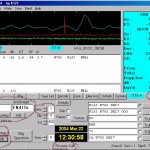 Hello, friends! Episode #118 of Linux in the Ham Shack is ready for your immediate consumption. Lots of ham radio and Linux related news in this episode, including discussion of Ham Radio Now, the sun's magnetosphere, digital contacts on 28MHz, Linux Mint, Linux news aggregation sites and more. Sit back in your easy chair, put on your headphones, and enjoy a sweet slice of podcast nirvana. Until next time...
Hello, friends! Episode #118 of Linux in the Ham Shack is ready for your immediate consumption. Lots of ham radio and Linux related news in this episode, including discussion of Ham Radio Now, the sun's magnetosphere, digital contacts on 28MHz, Linux Mint, Linux news aggregation sites and more. Sit back in your easy chair, put on your headphones, and enjoy a sweet slice of podcast nirvana. Until next time...
73 de The LHS Guys
Podcast: Play in new window | Download

